Filter by

Modern Techniques and Solvents for the Extraction of Microbial Oils
A valuable reference presenting many processes that facilitate lipid extraction from micro-organisms. Amongst the techniques included are Folch, Bligh and Dyer methods, and the Soxhlet technique as well as intensified green processes (ultrasound, microwave, supercritical fluid extraction, agro-solvent, accelerated solvent extraction, enzyme-assisted extraction, instant controlled pressure drop,…
- Edition
- 1
- ISBN/ISSN
- 978-3-319-22716-0
- Collation
- XII, 52
- Series Title
- SpringerBriefs in Molecular Science
- Call Number
- -
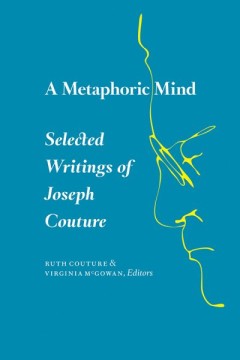
A Metaphoric Mind Selected Writings of Joseph Couture
With a foreword by Lewis Cardinal, A Metaphoric Mind brings together for the first time key works selected from among Dr. Joe’s writings, published and unpublished. Spanning nearly thirty years, the essays invite us to share in his transformative legacy through a series of encounters, with Aboriginal spirituality and ancestral ways of knowing, with Elders and their teachings, with education a…
- Edition
- -
- ISBN/ISSN
- 9781926836539
- Collation
- -
- Series Title
- -
- Call Number
- 329
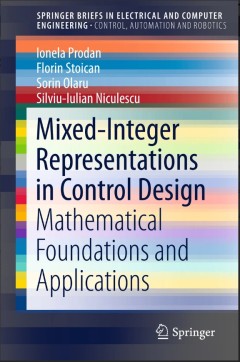
Mixed-Integer Representations in Control Design:Mathematical Foundations and …
In this book, the authors propose efficient characterizations of the non-convex regions that appear in many control problems, such as those involving collision/obstacle avoidance and, in a broader sense, in the description of feasible sets for optimization-based control design involving contradictory objectives. The text deals with a large class of systems that require the solution of appro…
- Edition
- 1
- ISBN/ISSN
- 978-3-319-26993-1
- Collation
- XII
- Series Title
- SpringerBriefs in Electrical and Computer Engineering
- Call Number
- -
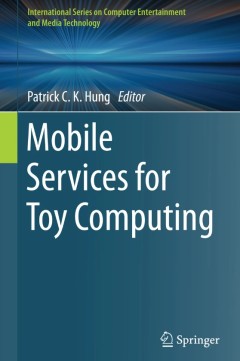
Mobile Services for Toy Computing
The goal of this book is to crystallize the emerging mobile computing technologies and trends by focusing on the most promising solutions in services computing. The book will provide clear proof that mobile technologies are playing an increasingly important and critical role in supporting toy computing. The goal of this book is to bring together academics and practitioners to describe the use a…
- Edition
- 1
- ISBN/ISSN
- 978-3-319-21322-4
- Collation
- VIII, 192
- Series Title
- International Series on Computer Entertainment and Media Technology
- Call Number
- -
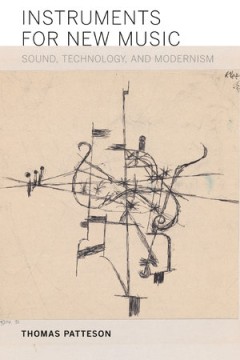
Instruments for New Music : Sound, Technology, and Modernism
Player pianos, radio-electric circuits, gramophone records, and optical sound film—these were the cutting-edge acoustic technologies of the early twentieth century, and for many musicians and artists of the time, these devices were also the implements of a musical revolution. Instruments for New Music traces a diffuse network of cultural agents who shared the belief that a truly modern music …
- Edition
- -
- ISBN/ISSN
- -
- Collation
- -
- Series Title
- -
- Call Number
- 714 PAT i
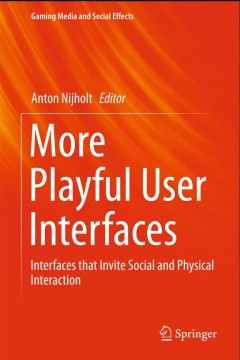
More Playful User Interfaces
This book covers the latest advances in playful user interfaces – interfaces that invite social and physical interaction. These new developments include the use of audio, visual, tactile and physiological sensors to monitor, provide feedback and anticipate the behavior of human users. The decreasing cost of sensor and actuator technology makes it possible to integrate physical behavior inform…
- Edition
- 1
- ISBN/ISSN
- 978-981-287-545-7
- Collation
- X, 261
- Series Title
- Gaming Media and Social Effects
- Call Number
- -

Sound, Physics and Music
Music is the art of sound, so let's start by talking about sound. Sound is invisible waves moving through the air around us. In the same way that ocean waves are made of ocean water, sound waves are made of the air (or water or whatever) they are moving through. When something vibrates, it disturbs the air molecules around it. The disturbance moves through the air in waves - each vibration m…
- Edition
- -
- ISBN/ISSN
- -
- Collation
- -
- Series Title
- -
- Call Number
- 780 SCH s
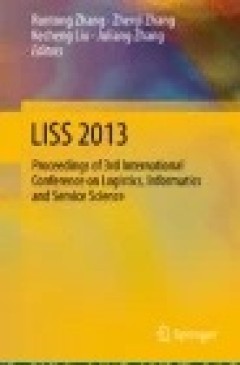
LISS 2013: Proceedings of 3rd International Conference on Logistics, Informat…
Information and communication technology has helped to provide a more effective network infrastructure and development platform for logistics and service operations. In order to meet the needs of consumers and particularly to promote low-carbon development processes, new types of services will also emerge. LISS 2013 is a prime international forum for both researchers and industry practitioners …
- Edition
- -
- ISBN/ISSN
- 978-3-642-40660-7
- Collation
- -
- Series Title
- -
- Call Number
- -

Methane Combustion over Lanthanum-based Perovskite Mixed Oxides
This book presents current research into the catalytic combustion of methane using perovskite-type oxides (ABO3). Catalytic combustion has been developed as a method of promoting efficient combustion with minimum pollutant formation as compared to conventional catalytic combustion. Recent theoretical and experimental studies have recommended that noble metals supported on (ABO3) with well-order…
- Edition
- 1
- ISBN/ISSN
- 978-3-662-46990-3
- Collation
- XXII, 103
- Series Title
- Springer Theses
- Call Number
- -

Metal Response in Cupriavidus metallidurans:Volume II: Insights into the Stru…
This book is the second volume of a two-volume set summarizing 40 years of key research findings directly related to metal-resistant Cupriavidus/Ralstonia (Betaproteobacteria). In this second volume, the structural and catalytic data from bacterial primary and secondary transporters (P-ATPases, tripartite chemiosmotic cation/proton efflux systems, cation diffusion facilitators, Major Facilitato…
- Edition
- 1
- ISBN/ISSN
- 978-3-319-20623-3
- Collation
- VII, 70
- Series Title
- SpringerBriefs in Molecular Science
- Call Number
- -
 Computer Science, Information & General Works
Computer Science, Information & General Works  Philosophy & Psychology
Philosophy & Psychology  Religion
Religion  Social Sciences
Social Sciences  Language
Language  Pure Science
Pure Science  Applied Sciences
Applied Sciences  Art & Recreation
Art & Recreation  Literature
Literature  History & Geography
History & Geography